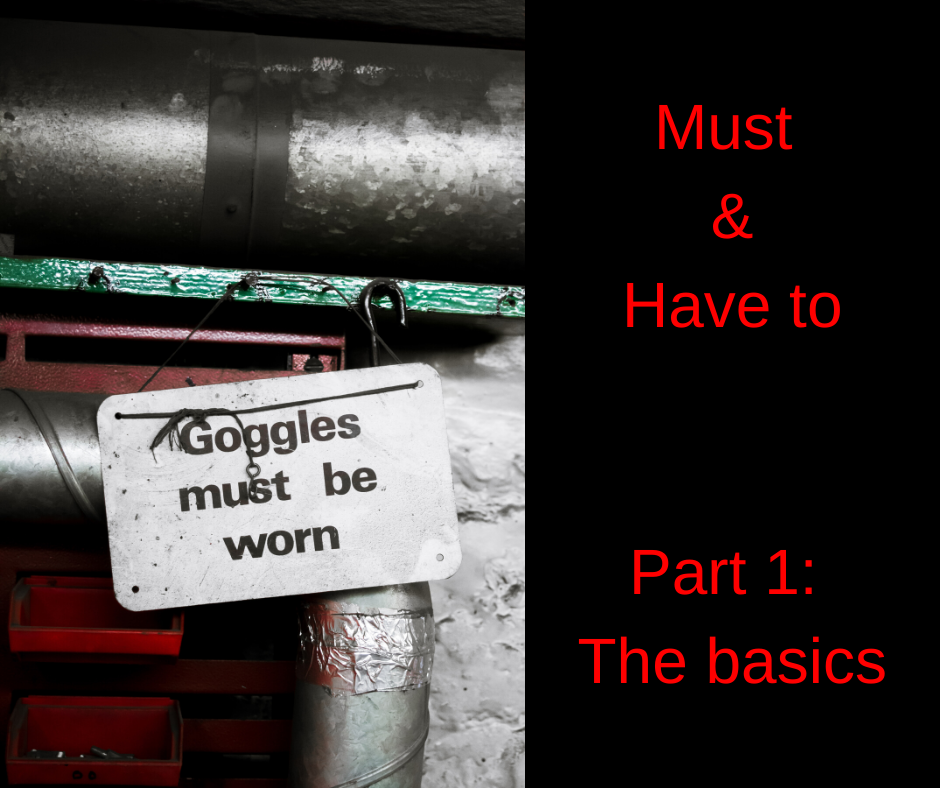
When should you use ‘must’ and when should you use ‘have to’, and what’s the difference between them?
Feedback from Angelica from Mexico on the website. https://inglespodcast.com/298
About this podcast, tequila and mezcal, I can tell you that both are made from the same plant called “agave”.
There are many types of agave but tequila can only be made from agave azul and mezcal can be made from different agaves.
Other (Another) important difference is the production process, tequila is more industrial using big ovens, mezcal is more “artesanal”.
italki: https://go.italki.com/aprenderingles
“Get $10 USD in italki Credits with your first purchase”
MUST and HAVE TO are more or less the same for obligation. We can put ‘must’ or ‘have to’ before the verb:
I have to edit this podcast before Sunday. I must edit this podcast before Sunday. – Very similar meanings.
HAVE TO
Craig and Reza told me that I have to study modal verbs. (pronunciation: /hafta/
My doctor said that I have to lose weight.
If you go to the US, you have to get a visa.
“Excuse me, do I have to show the receipt for a refund?”
Use HAVE TO for things that are necessary and laws. The obligation usually comes from someone else; a doctor, the government, your boss, your English teachers!
With informal English sometimes we use have got.
We’ve got to be at the airport by 8 o’clock.
Has she got to get a vaccination before she goes on holiday?
MUST
Must is often used when you decide yourself that something is necessary.
I really must stop smoking. (maybe the doctor didn’t tell you but you feel the obligation inside you) (pronunciation: /mus/)
I’m putting on weight. I must cut down on all the chocolate I’m eating.
The decision of the speaker to use “must” or “have to” often depends on the internal obligation the speaker feels.
“Reza’s coming to my flat to record and we’ve run out of biscuits. I must get a packet of biscuits!” (Strong internal obligation).
We can also use MUST to make recommendations; When you go to Argentina, you must try dulce de leche. It’s delicious.
“Must you smoke in here?” (Do not use “do”, or other auxiliary verbs, to make questions with modal verbs)
Use “not” for the negative – “You mustn’t (must not) eat in here.” / “You mustn’t smoke in bed.”
Modal verbs like ‘must’ are not followed by the infinitive with “to”XI must to buy breadX
They are followed by the base form = infinitive without “to” – “I must buy bread.”
There is no past form of must (for obligation). The past of “You must do your homework.” is “You had to do your homework.”
Use “will have to” for future obligation. “You will have to do your homework.”
The negative of have to (don’t have to) means it’s not necessary to do it but you can if you want.
“You don’t have to send us a voice message. You could send us an email instead. But we do prefer voice messages.”
The negative ‘don’t have to’ means it’s your choice.
The negative ‘mustn’t’ means do not do it – prohibition!
You mustn’t drink and drive. It’s against the law.
You mustn’t drive on the right in the UK. You have to drive on the left.
MUST is very common on public information signs.
“You must buy your tickets before boarding the bus.”
“Passengers must not speak to the driver while the bus is in motion.”
Notice that the long form MUST NOT is more formal than the contraction ‘mustn’t’.
Discussion
Do you have to insure your car to take it on the roads?
Do you have to help someone who’s had an accident?
Must Reza bring up Craig’s love of Mickey Mouse over and over again?
Must you listen to this podcast to improve your English? YES, you must!!
…and now it’s your turn to practise your English.
Send us a voice message. https://www.speakpipe.com/inglespodcast
Send us an email with a comment or question to [email protected] or [email protected].
Visit our online store: https://store.mansioningles.net/
Thank you to all of you who are helping us by supporting this podcast. You can see a list of all our Patreon supporters at Patreon.com/inglespodcast
Welcome to our new Patreon supporters who have joined us this month:
Ana Sol
Jennifer Risco Villon
José
Angel Hazas
Jose Luis Hernandez
Blanca Lorca
Join our Patreon program for as little as $1 per month and you get instant access to recent transcriptions. https://www.patreon.com/inglespodcast
On next week’s episode: Bed and Breakfast Tourism
The music in this podcast is by Pitx. The track is called ‘See You Later’
Picking fingers by Stefan Kartenberg (c) copyright 2019
Licensed under a Creative Commons Attribution Noncommercial (3.0) license.
http://dig.ccmixter.org/files/JeffSpeed68/59513 Ft: unreal_dm
Dream on me by Stefan Kartenberg
(c) copyright 2018 Licensed under a Creative Commons Attribution Noncommercial (3.0) license.
http://dig.ccmixter.org/files/JeffSpeed68/58983 Ft: Javolenus
Photo by Adam Birkett on Unsplash



1 comment on “Must and Have to – Part 1: The basics – AIRC301”